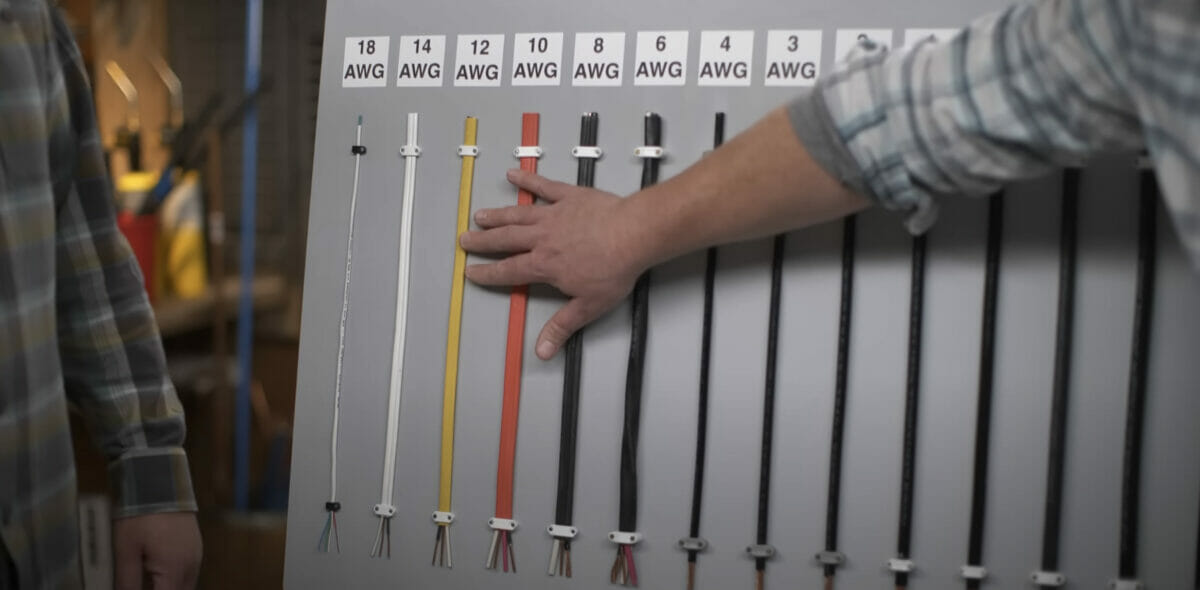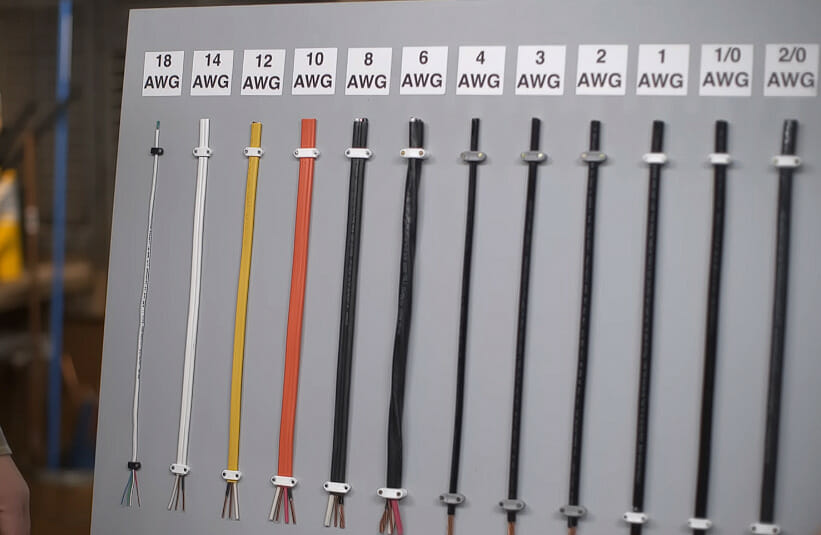What Size of Wire for 30 Amp?

The wire size for 30 amp isn’t just about safety but also about ensuring your appliances work effectively and efficiently.
The go-to size for most 30 Amp services is a #10 AWG wire. Some even opt for #8 AWG for longer distances. Don’t just take my word for it – there’s science behind this too! The National Electric Code (NEC) even recognizes #10 AWG as an adequate wire size for a 30 Amp service.
Now let’s dive deeper into the nitty-gritty of wire size selection!
Determining Wire Size for 30 Amp Circuits

Wire Gauge and Diameter
For a 30 amp circuit, consider the American Wire Gauge (AWG) for the wire size.
The most common sizes include 16, 14, 12, 10, 8, 6, and 2-gauge wire. The lower the gauge number, the bigger the diameter and the more current it can *safely* carry. (Safety first!)
For a 30 amp circuit, it’s recommended to use 10-gauge copper wire or 8-gauge aluminum wire.
Voltage Drop and Distance
When we run a wire, there’s something called voltage drop. In a nutshell, the voltage drop is the decrease in voltage as electricity travels along the distance of the wire.
To keep things safe and efficient, we must keep this voltage drop within acceptable levels. The longer your wire run, the more likely you’ll encounter a voltage drop. And that means you might need a larger wire gauge.
Voltage Drop over Distance for 30 Amp Circuit
| Wire Gauge (AWG) | 25 Feet (Voltage Drop %) | 50 Feet (Voltage Drop %) | 100 Feet (Voltage Drop %) |
|---|---|---|---|
| 10 (Copper) | Minimal | Acceptable | Potential Issues |
| 8 (Aluminum) | Minimal | Minimal | Acceptable |
Understanding the National Electrical Code (NEC) Requirements

Let’s discuss the National Electrical Code (NEC) and its requirements to ensure we’re on the right track.
The NEC is important because it sets the standards for safe electrical installations.
As a part of these standards, there’s a code known as NEC 310-16, which helps us determine what wire size to use based on the amperage we’re working with.
So, let me break it down for you real quick. For a 30-amp breaker, the NEC recommends using a 10-gauge wire. This thickness can handle the higher voltage without overheating or causing an overload.
But wait, there’s more! Distance plays a crucial role too. For shorter distances, a 10-gauge wire is usually sufficient.
But if you’re dealing with a longer run, you may need to step it up to an 8-gauge wire to prevent voltage drop and ensure your system runs smoothly.
Now, one last thing to consider is the installation conditions. The NEC considers factors such as location type and temperature ratings for insulation.
So, always adhere to the NEC standards to ensure you get the job done right.
The 80% Rule and Amperage Rating
According to the National Electrical Code (NEC), following the 80% rule is ideal when choosing the best wire size for a 30 amp.
We should only load up to 80% of a circuit’s amperage rating. That way, we reduce the risk of electrical fires and ensure our electrical system remains in top shape.
So, for a 30-amp circuit, you’d want a wire size that can handle 30 amps x 80% = 24 amps.
From my experience, a 10-gauge wire is the minimum size for a 30-amp breaker. However, you can choose an 8-gauge wire to provide that extra safety and account for the 80% rule.
But as usual, it’s always best to consult a professional electrician when dealing with your home’s electrical system.
References
Organizations:
- National Fire Protection Association (NFPA). http://www.nfpa.org/
Website Resources:
- Electrical Safety Foundation International (ESFI). https://www.esfi.org/
- Mike Holt’s NEC Resource Center. https://www.mikeholt.com/index.php
Video References
Doctorbass
This Old House
